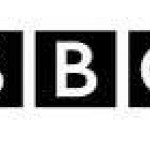- Settore: Broadcasting & receiving
- Number of terms: 5074
- Number of blossaries: 1
- Company Profile:
The largest broadcasting organisation in the world.
A candidate who does not belong to one of the two main US political parties, the Republicans or the Democrats.
No third-party candidate has ever won the presidency, but they have may have strongly influenced the result. For example, in 1992, Ross Perot took votes away from incumbent George HW Bush and helped Bill Clinton gain victory.
Industry:Government
On the campaign trail, candidates often deliver a generic speech, known as their "stump speech", outlining their core campaign messages.
Industry:Government
A derogatory term mostly used by conservatives to refer to Republicans closer to the center of the political spectrum.
Industry:Government
The joint chiefs are the leading military advisers to the president and the secretary of defence.
The panel is made up of the chiefs of staff of the US Army and Air Force, the chief of naval operations and - in cases involving marine corps issues - the commandant of the marine corps.
The group is headed by a chairperson who is considered a spokesperson for the US military as a whole as well as the president's principal military adviser.
Industry:Government
This refers to a group of conservatives within the Republican party who campaign for equal rights for homosexuals. The name is a reference to Abraham Lincoln, who was born in a log cabin and who believed in freedom and equality.
Industry:Government
Soft money refers to political funds raised outside the regulations and laws of the Federal Election Campaign Act, and has been the main target for advocates of campaign finance reform.
Soft money had to be deposited in non-federal party accounts at state level and could not be used in connection with federal elections. A series of legal loopholes were used to get around this technicality, until the practice was banned by the McCain-Feingold law in 2002.
Industry:Government
A chad is the small piece of waste paper or card created when a hole is punched in a ballot.
Chads became famous in the 2000 presidential election, when the results in Florida were so close that a recount was necessary and electoral officials were forced to examine the ballot papers to determine voters' intentions.
Some voters had punched their preferences, but the chad had not fully separated from the ballot (a hanging chad). In other cases, and indentation had been made in the ballot but it had not been punched through (a pregnant or dimpled chad).
Industry:Government
An apparatus for use by voters at polling stations that mechanically records and counts votes.
Voting machines have come under intense scrutiny in recent years, with critics expressing concerns that electronic machines offer inadequate safeguards against fraud.
Industry:Government
The redrawing of political boundaries at local, state, and federal levels every decade following the US census.
This is done to reflect changes in the population and to keep the population within each district more or less equal. The process can be controversial because of the fear that the dominant party may intentionally manipulate boundaries for its own political advantage in the next election.
Industry:Government
